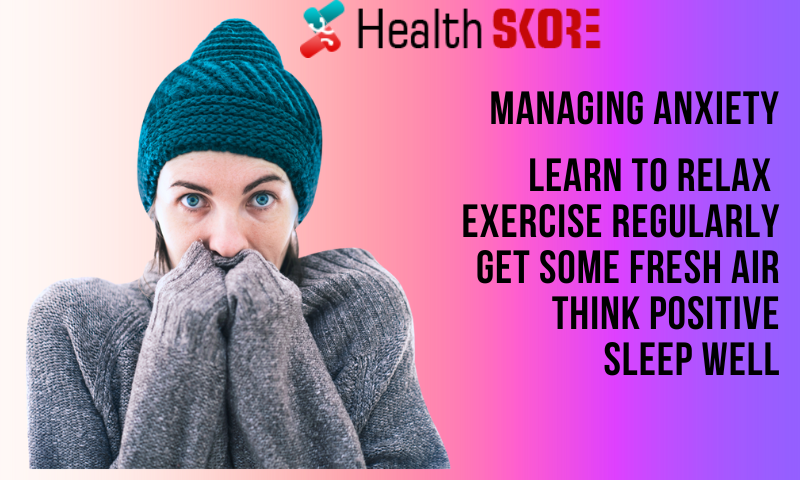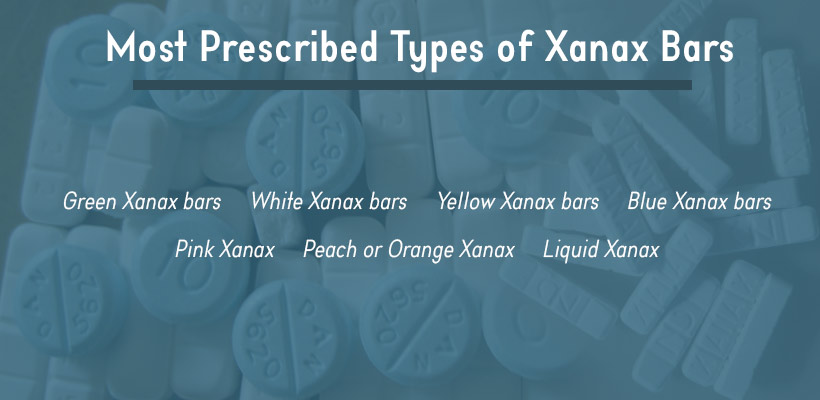What is Anxiety disorder, and what are the possible causes of anxiety in human psychology?
Anxiety is a normal and natural response to stress in your body. When people have anxiety problems, they have feelings of fear, unpleasantness, and uneasiness. APA (American Psychological Associations) defines anxiety as an emotional feeling characterized by a feeling of tension, worried thoughts, and physical changes, for example, increased blood pressure.
When individuals have anxiety, they feel worried, nervous, and anxious when faced with a difficult problem at work, before making an important decision, or before taking a test. People with anxiety also feel nervous and anxious on the first day of school, during a job interview, or giving a speech.
But most of the time, anxiety does not become harmful; it is a normal emotion like other emotions in our body, like happiness. Sometimes tension gives you a boost of energy and helps you focus on the work. When an individual has harmful and worrying triggers, feelings of anxiety are normal and necessary for survival.
But if a person regularly feels an extreme level of anxiety longer than six months that interrupts their life, it might lead to an anxiety disorder.
Anxiety and anxiety disorders are both different. Anxiety is a normal emotion characterized by worrying thoughts or tensions. But an anxiety disorder involves intensive thoughts that lead to a diagnosis.
Possible causes of anxiety in human psychology
Anxiety is a necessary, normal emotion that can have a wide range of causes in human psychology. Till yet, researchers are not sure of the exact cause of anxiety. But they define several factors that cause anxiety, such as environmental factors, genetic factors, medical factors, life stress, and social situations.
1. Environmental factors: Include various situations for causing anxiety such as relationship problems, difficulty at work, family issues, cultural and religious upbringing, and much more. These factors influence an individual’s life entirely and can cause anxiety
2. Genetic factors: include genetic issues such as hereditary. For example, if any of your family members are prone to anxiety disorder, then their children can have anxiety issues as well.
3. Medical factors: Include some symptoms of the disease that cause tensions and anxiety. Such as the effect of medication, and stress due to diseases, and taking medications.
4. Brain chemistry: It is also responsible for causing anxiety because it handles all the life stresses and other social situations.
How can we identify if we are facing/experiencing anxiety?
Different people feel anxiety in different ways; it depends on an individual’s experience and their worries. But if you have anxiety you can identify it by recognizing symptoms such as:
• Feeling of danger, panic, and dread
• Feeling out of control, e.g disconnection from your mind and body
• Increased heart rate
• Rapid breathing
• Restlessness
• Trouble concentrating
• Difficulty falling asleep
• Uncontrolled feelings of worry
• Increased irritability
• Increased or heavy sweating
• Weaknesses and lethargy
• Difficulty focusing and thinking clearly
• Digestive and gastronomical problems such as constipation, gas, and diarrhoea
You can experience these symptoms in daily life while stressing about work and other issues.
Anxiety disorders that are treatable
Anxiety disorder is the center of several numbers of disorders, fears, and treatable phobias. The Diagnosis and Statistical Manual of Mental health disorder (DSM) classifies anxiety disorder into several main types:
1. Generalized anxiety disorder: This type of anxiety involves excessive and long-lasting stress and worries relating to non-specific life events, objects, and situations. This is the most common type of anxiety attack.
2. Panic disorder: In this type of anxiety disorder, people experience brief and sudden attacks at unexpected times. These attacks include shaking, dizziness, nausea, breathing difficulties, and confusion.
3. Specific phobias: People feel excessive and irrational fear and avoidance of specific object situations and activities in phobias.
4. Agoraphobia: Agoraphobia is fear, worry and avoidance of place, events. People with agoraphobia always use elevators and public transport due to extreme fear.
5. Social phobia and social anxiety- Social phobia is a fear of negative judgment from others in social situations or public embarrassment. Social anxiety includes a range of feeling such as fear of intimacy and anxiety about rejections and humiliation.
6. Separations anxiety disorder- This type of anxiety disorder occurs when a person suddenly gets separation from a place or a person that provides the feeling of safety and security.
What are the triggers of anxiety attacks?
Anything that can cause anxiety is a trigger for a possible anxiety attack. Some of the triggers that can cause anxiety are:
• Crowed stress
• Health issues
• Medications
• Caffeine
• Skipping meals
• Negative thinking and financial concerns
• Personal triggers
Social situations at work that can cause anxiety attacks
Social situations at work that can cause anxiety attacks are:
• Pressure of work
• Social rejections
• The workload that one is unable to manage
Being a friend to your co-worker with an anxiety disorder
If any of your co-workers have a problem with anxiety attacks, you should talk with them. With conversation, you can know their situation; you can help them to lower down the stress. If they need proper treatment, you can inform his/her family about it.
Steps to calm down a person experiencing an anxiety attack
There are different ways to calm down a person experiencing anxiety attacks:
• Conversation– It will help a person to share their problems
• Medications– If a person has severe anxiety attacks problem, medicines can help to cure them
• Physical activities– Several physical activities can also help to coup up with anxiety problems.
Medications available to control anxiety disorder
There are some medicines available that can prevent and control anxiety disorder. These medicines control anxiety by working on some physical and mental symptoms. These medications include benzodiazepines, antidepressants, tricyclics, and beta-blockers.
1. Benzodiazepines-
Doctors can prescribe benzodiazepines like Xanax and Diazepam to control anxiety. These medicines directly work on the central nervous symptoms and increase specific chemicals and neurotransmitters in the brain. These chemicals give our body a calming and relaxing feel that helps a person cope with anxiety. Benzodiazepines also have an addictive nature and tendency of causing drowsiness and dizziness.
2. Antidepressants: Often, pharmacists prescribe these medications to treat common anxiety, such as Celexa, Citalopram, and Prozac. Although when treatment begins, antidepressants usually cause nausea, jitters, and sexual dysfunctions.
3. Tricyclics: Tricyclics include medications like Imipramine; Clomipramine is a class of drugs older than SSRI. These medications provide benefits for anxiety disorders. These drugs can also cause dizziness, dry mouth, and drowsiness.
Take consultation from your health care provider if you see any severe effects while using these medicines.
How to battle anxiety while facing a difficult situation
While facing any difficulty, you should avoid having stress. You should do this work with ample rest. You can take the help of others to simplify your work. It will help you avoid anxiety.
Is there a cure for anxiety?
Yes, anxiety can be cured with some treatments such as physical activity, counseling, medications, and natural remedies.
1. Physical activities
In everyday situations of anxiety, people can cure it with some physical activities without clinical supervision. There are several exercises and actions with which you can self-cure anxiety problems:
• Stress management- You can learn to manage stress; it will help you to limit potential triggers. You can make a list of your daily activities and tasks, and it will help you manage your time. You can organize your pressures and the upcoming task before the time. All these activities help you to lower down stress and anxiety.
• Relaxation techniques- Relaxation techniques help soothe the mental and physical signs of anxiety. These techniques include meditations, long baths, deep breathing exercises, resting in the dark, and yoga.
• Exercises to replace negative thoughts with positive ones- First, you can list the negative thoughts causing anxiety. With positive thoughts, you can replace every negative thinking with positive ones. You can take a virtual image of successfully facing a specific fear. All these exercises will help you cope up with feelings of anxiety.
• Support network- If you have a problem of fear and any kind of phobia, you can talk about it with your family members and friends. It will help you and gives strength to cope up with these problems.
• Physical exercise: Physical exercises help you increase the oxygen level and brain chemicals that lower stress.
2. Counseling
Counseling includes CBT (cognitive behavioral therapy), psychotherapy, and a combination of treatments. In these therapies, your psychologist helps you cope with anxiety by conversing and managing your life stress.
3. Natural remedies
Some natural remedies also help you cure anxiety, such as:
• Good sleep
• Eating a healthy diet
• Staying active and working out
• Avoiding alcohol and caffeine
• Quitting smoking cigarettes
Relation between lack of sleep and anxiety
Lack of sleep can cause stress that can cause anxiety. If you will not take proper sleep, you cannot do your work on time. You will not feel active and fail to manage your life and daily task. All these worries can trigger anxiety.
Conclusion
All the above information can help one overcome anxiety and lead a better life without fear or judgement.
Xanax is normally used for treating anxiety disorders. Find Xanax easily at our online store “Health Skore” or alternately visit our website Health Skore.



